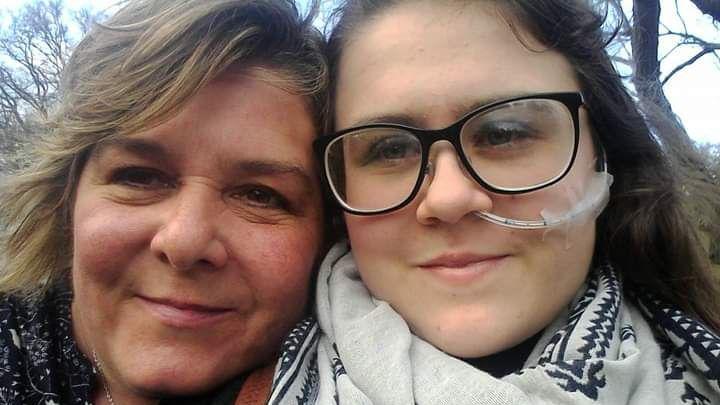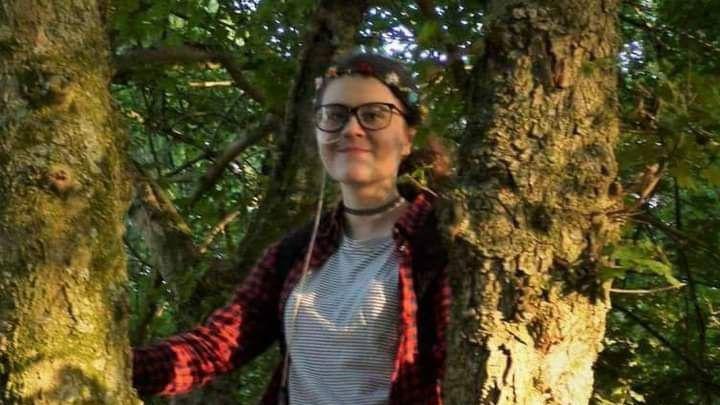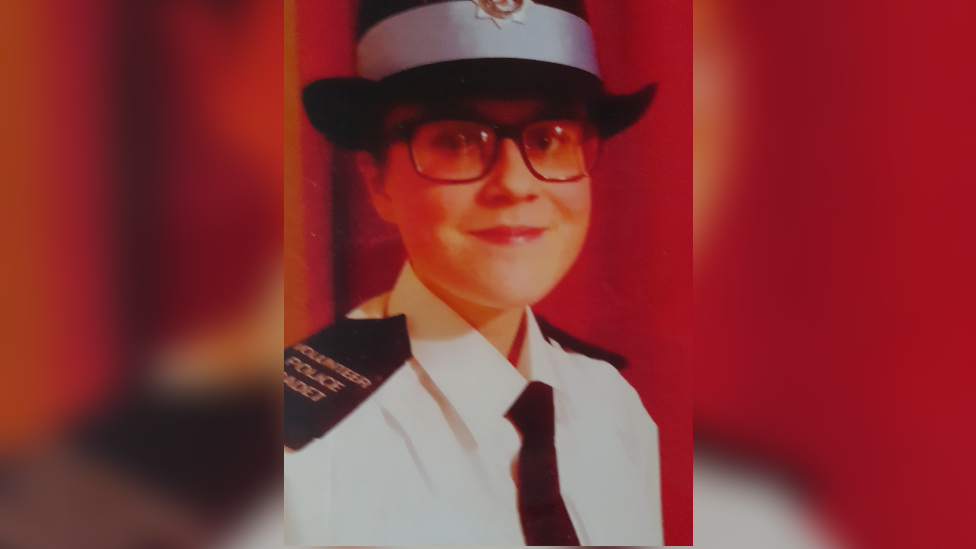Daughter would 'still be here' if care was different

Gina Schiraldi believes Cariss Stone would still be alive if her care was different
- Published
The mother of a vulnerable woman who died on a psychiatric ward in Somerset believes her daughter would still be alive if her care had been managed differently.
Cariss Stone, from Street, died in 2019, two days after she was found unresponsive on the bathroom floor of her room at a mental health unit in Taunton, with a ligature around her neck.
The jury at an inquest in Wells returned a narrative conclusion, ruling Ms Stone's death was accidental, but noted "deficiencies" in the way she was observed could have contributed.
Somerset NHS Foundation Trust has apologised "wholeheartedly" for the shortcomings in the care provided.

Cariss Stone was being cared for at a mental health unit in Taunton
Ms Stone, who was 19 and a former police cadet, had been detained under a section at the Holford Ward at Wellsprings Hospital in Taunton and was supposed be checked every five minutes.
However, on the day she was found unconscious, those checks were said to have taken place longer than five minutes apart, with the nurse responsible for those assessments admitting to the inquest she had "loads" of patients to watch at the time.
A postmortem concluded the cause of death was hypoxic brain injury, cardiac arrest and asphyxia.
Following the inquest, Gina Schiraldi, Ms Stone's mother, said: "We miss Cariss very much.

Cariss Stone had been a police cadet
"There is a space where she should be – she is missing from family photos, and there is an empty chair where she should be sat at the dinner table.
"There is only silence where there should be music and laughter, enjoying time and making plans with friends and family.
"Had Cariss' care been managed differently, we think she would still be with us and working towards her hopes and dreams for the future.
"Despite her challenges Cariss worked so hard and she was so bright.
"She needed help with learning how to cope with her condition, and she was let down by the services that were designed to support her."
'Confusing, inadequate and unsafe'
Law firm Irwin Mitchell, which represented Ms Stone's mother, said: "The inquest exposed a number of concerning issues in relation to the care that Cariss received which, in turn, raise broader issues for mental health inpatients.
"In particular, the Somerset NHS Foundation Trust admitted that observations of Cariss were not undertaken as they should've been, and this was possibly causative of her death.
"The Trust also admitted that its system for managing observations on the ward was confusing, inadequate and unsafe."
'Tragic loss'
Jane Yeandle, service group director for mental health and learning disabilities at Somerset NHS Foundation Trust said:
"Our deepest sympathies go out to Cariss’ family for their tragic loss. We apologise wholeheartedly for the shortcomings in the care we provided.
"We accept the coroner’s findings and will act on those recommendations."
She said the trust undertook an external review of its practices in 2019, adding: "We will look closely at the coroner's finding to see whether there's more we can do.
“We have improved the training for colleagues who undertake clinical observations to ensure all details are clearly recorded and that colleagues communicate more effectively with each other.
"We will also undertake to improve the way we involve and communicate with families during the investigation of incidents."
Follow BBC Somerset on Facebook, external and, X, external. Send your story ideas to us on email, external or via WhatsApp on 0800 313 4630.